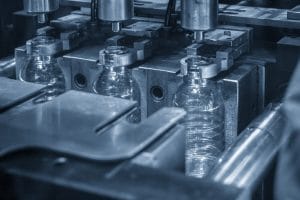 The concept of thermal management impacts every industry to a certain degree. Most commonly, it’s applied to the process of keeping electrical enclosures cool by eliminating the waste heat that electrical components emit. All companies today utilize technology for a wide range of processes, and that makes electrical cooling one of the most significant thermal management concerns. However, in the plastic molding industry, thermal management has a much more significant implication. Molds must be cooled rapidly and evenly to be viable, and the efficiency with which companies can complete this process plays an important role in their ability to operate.
The concept of thermal management impacts every industry to a certain degree. Most commonly, it’s applied to the process of keeping electrical enclosures cool by eliminating the waste heat that electrical components emit. All companies today utilize technology for a wide range of processes, and that makes electrical cooling one of the most significant thermal management concerns. However, in the plastic molding industry, thermal management has a much more significant implication. Molds must be cooled rapidly and evenly to be viable, and the efficiency with which companies can complete this process plays an important role in their ability to operate.
Thermal management in modern industries
The advancement of thermal management principles has had a significant impact in the realm of electrical cooling, as companies have been able to streamline processes that have traditionally been costly and cumbersome. For example, where companies used to rely most frequently on cooling solutions like air conditioners and air compressors to chill electrical enclosures, more modern solutions such as heat exchangers allow them to keep their equipment cool by transferring the waste heat. Instead of complicated equipment and chilled air, heat exchangers only require an eco-friendly cooling fluid and custom-designed apparatus to rapidly absorb and transfer electrical waste heat away from sensitive components.
Can heat exchangers be applied to molding?
With the ability to keep electrical waste heat in constant motion, heat exchangers have become a cornerstone of electrical thermal management in several different industries. Their simplified methods of transferring heat have also made thermal management more versatile, with heat exchangers being applied to an increasingly wider variety of applications. For example, thermal pins, which are specially designed using heat exchangers’ heat transfer principles, have made thermal management much more efficient for several companies in the plastic molding industry. Thermal pins provide a more reliable way to rapidly remove heat from plastic molds, allowing for faster production of higher-quality molds.
The advantages of using custom thermal pins
Much like more conventional heat exchangers, thermal pins are designed to use natural methods of transferring heat to make thermal management more efficient. In most applications, this means lowering the costs and maintenance needs associated with cooling methods that require chilling air. In plastic molding applications, this means making the production process smoother and more reliable, which helps increase the quantity and quality of the company’s yields. For more information about transferring heat with thermal pins in the molding industry, call Noren Thermal Solutions in Taylor, TX, at 866-936-6736.







